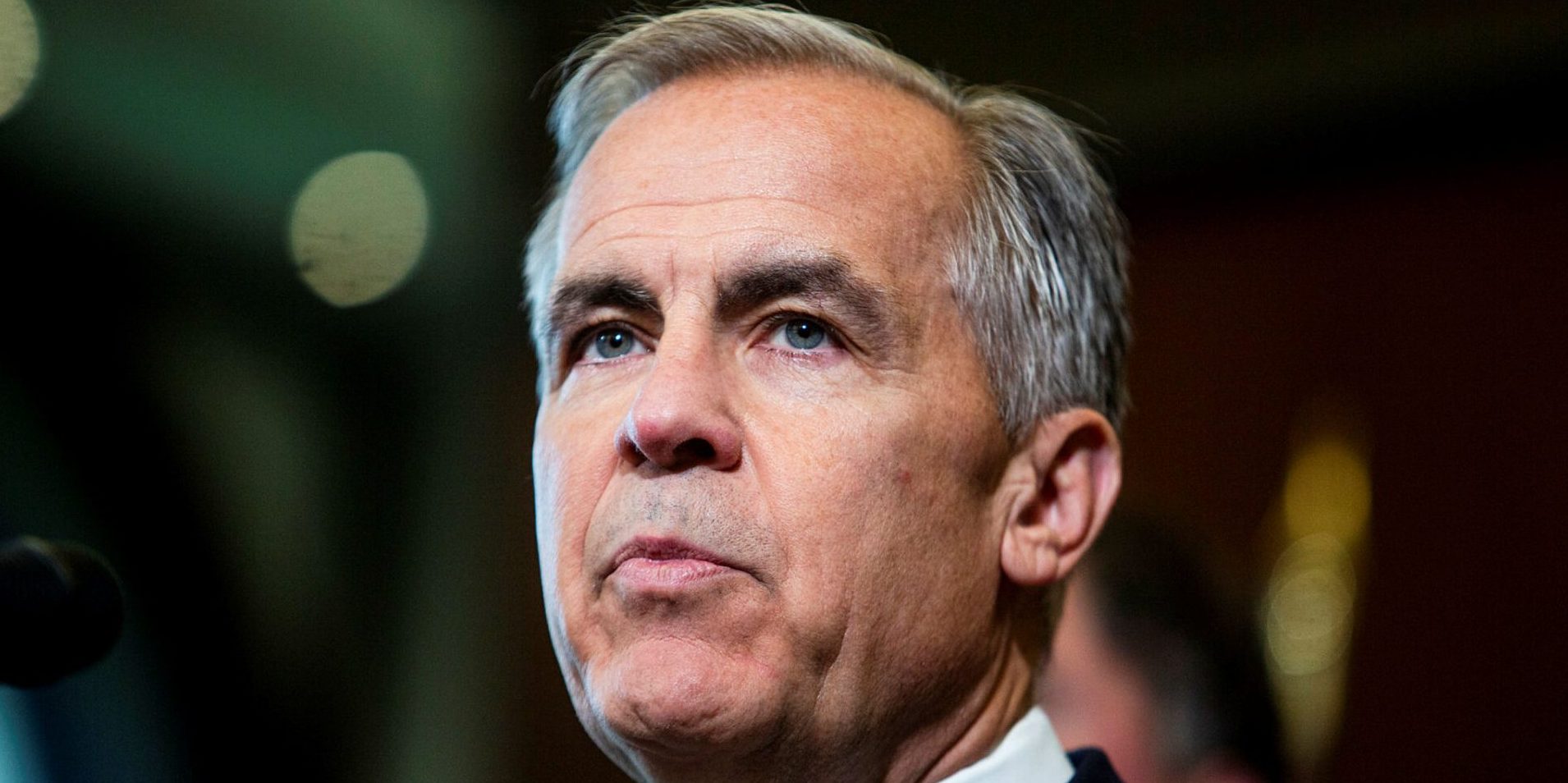Natural resources, economy top lobbying issues in May

A push for the new Liberal government to take advantage of Canada’s natural resources moved economic development lobbying into the most-lobbied issue in May, following two months of federal advocacy dominated by international trade. It was the first time international trade was the top-lobbied issue in almost six years, according to the federal lobbyists registry.
“Over the past decade, we’ve really struggled as an economy. We haven’t focused on the economy from a policy incentive environment,” said Adam Legge, president of the Business Council of Alberta (BCA). “Now with this new government, new prime minister, we wanted to bring attention to the economic agenda—to ensure that this government actually had economic development as a priority.”
Economic development was the most popular subject matter in federal advocacy in May, appearing in 389 communication reports. In 2025, advocacy about the economy also dominated in January and February, but March and April featured an unusual shift to communications about international trade appearing in the majority of communication reports.
While economic development is a common subject to lead in the communication report totals for a month, international trade is not. The last time international trade led as the most popular subject for a month was in August 2019, according to the federal lobbyists’ registry.
Legge told The Hill Times that his organization’s interest in discussing the economy last month was motivated in part by the conflicts around the world driving a demand for Canada to serve as a stable supplier of energy, critical minerals, food, and building products. He said that “the backdrop of geopolitical battles,” such as the war between Russia and Ukraine, is generating a need for a supply of goods from democratic nations, which he argued Canada can provide.

“In an era where the world is looking for stable and reliable sources of energy, of food, of forestry and building products, of increasingly critical minerals, Canada is ideally situated and positioned to be the world’s pre-eminent supplier of all of those things, but it will take policy change,” said Adam Legge.
“It will take a shift in the government mindset from the past decade, and it will take ambition for us to get this done and to build on it quickly.”
Out of 20 communication reports filed by the BCA in May for overall advocacy activity, 17 listed economic development as a subject, which was more than what was filed on that subject by any other group that month.
In May, the BCA communicated with public office holders to discuss a policy platform the organization prepared before the April federal election. The platform, called “A Strong Canada. A Good Life,” argues that leveraging this country’s natural resources should be a key component of economic development.
Legge described natural resources as the largest economic sector in Canada, and this country’s largest source of exports.
“Frankly, Canada’s natural resource sector has been curtailed over the past decade. We have not seen policy that’s favoured its development, growth and continued exports, for the most part,” said Legge. “We’ve seen the loss of economic activity. We’ve seen the loss of investment, the loss of further job growth, and therefore the business sector is asking the federal government to unwind and take down some of those problematic policy and regulatory barriers that have basically kept capital away from Canada.”
The BCA’s advocacy activity last month included communications with Natural Resources Minister Tim Hodgson (Markham-Thornhill, Ont.) on May 23 and May 28. The organization is represented in-house on the registry by Legge.
Following behind the BCA in terms of economic development lobbying in May was Vale Canada Limited, which filed 12 communication reports on that subject, and the Canola Council of Canada (CCC), which filed 11.
Troy Sherman, CCC’s senior director of government and industry relations, said that the domestic canola sector has faced “a lot of uncertainty and definitely anxiety” in recent months owing to an uncertain trade environment with the United States and China—Canada’s top two export markets for canola, as previously reported in The Hill Times.
China levied a 100-per-cent tariff on Canada’s canola oil and meal—as well as a 25-per-cent levy on goods such as pork and seafood— on March 20, 2025, as a result of an anti-dumping investigation that was launched in September 2024. Anti-dumping probes are conducted when a country suspects a product is being imported at a lower price than it is sold for in the country where it is produced.
These measures by China against this country’s canola sector came after Canada implemented 100-per-cent tariffs on Chinese electric cars, and a 25-per-cent levy on steel and aluminum last year.
In regard to the U.S., our canola is currently exempt from the 25-per-cent tariff that the country has applied to all goods except those compliant with the Canada-United States-Mexico Agreement. However, Sherman told The Hill Times earlier this month that “there’s still a lack of predictability” about how long that may last, adding that the tariffs are “subject to the mood of the White House on any given day.”
The CCC’s advocacy activity last month included communication with Agriculture Minister Heath MacDonald (Malpeque, P.E.I.) on May 14. The organization is represented on the registry by Chris Davison, the CCC’s president and CEO.
The Aerospace Industries Association of Canada (AIAC) filed 10 communication reports in May, of which nine listed economic development as a subject for discussion.
AIAC’s president and CEO Mike Mueller told The Hill Times in an emailed statement on June 18 that economic development is a key pillar of the organization’s advocacy with the new Liberal government.

“Canada’s aerospace industry is a major engine of the economy, fostering world class capabilities, cutting edge innovation and one of the most highly skilled workforces on the planet,” said Mueller in the emailed statement.
“Yet despite contributing over $30-billion to GDP, exporting more than half of its output and supporting over 220,000 jobs from coast to coast, Canada still lacks a cohesive industrial strategy to fully harness our aerospace potential. That’s why AIAC has been unwavering in our engagement with the new government to ensure aerospace is recognized across all departments as a strategic priority and a key focus of Aerospace and Defence Industrial Strategies.”
The push for this country to develop an industrial aerospace strategy has been a long-standing issue for AIAC in federal lobbying. In June 2024, AIAC argued in a statement released on its website that Canada has been falling behind competitor nations and losing investment in aerospace research and development due to a lack of predictability and long-term planning. AIAC argued in the statement that the aerospace industry can be Canada’s ticket to greater economic stability through a strategy that better aligns policies, investments and opportunities for civil aviation.
AIAC’s advocacy in May also revolved around Canada’s luxury tax on pricey vehicles, according to Mueller.
Ottawa enacted the luxury tax in September 2022, which applies to vehicles and personal aircraft with sale prices of more than $100,000, and to boats for personal use with price tags of more than $250,000. The sales tax is either 20 per cent of the value of the vehicle above that threshold, or 10 per cent of the total value—whichever is lower.
Mueller described the luxury tax as “job killing” for aircraft manufacturing.
“[The luxury tax] continues to undermine Canadian competitiveness, workers, and the broader supply chain. Eliminating domestic aircraft sales from this tax would not only strengthen our industrial base but also signal that Canada is open for business, committed to national security, and determined to remain a global aerospace leader,” said Mueller in the emailed statement.
Then-finance minister Chrystia Freeland (University—Rosedale, Ont.), defended the tax in 2022, saying it was entirely reasonable to ask someone to pay more taxes if they have $100,000 to spend on a car.
AIAC communicated with Minister of International Trade Maninder Sidhu (Brampton East, Ont.) on May 29. The organization is represented on the registry in-house by Mueller, and by consultant William Yetman of Yetman Consulting.
The Hill Times
Top Economic Development Lobbying Organizations
| Organization | Communication reports |
| Business Council of Alberta | 17 |
| Vale Canada Limited | 12 |
| Canola Council of Canada | 11 |
| Roshel | 10 |
| Aerospace Industries Association of Canada | 9 |
| Photonic Inc. | 9 |
| Calian Group Ltd | 8 |
| Industries Lassonde inc. | 8 |
| Torngat Metals Ltd. | 8 |
| Western Canadian Shippers’ Coalition | 8 |
The above table shows the top organizations lobbying about economic development in May 2025. Based on a search of the federal lobbyists’ registry on June 17.
Top Overall Lobbying Organizations
| Organization | Communication reports |
| Federation of Canadian Municipalities | 24 |
| Business Council of Alberta | 20 |
| Canadian Cattle Association | 14 |
| Business Council of British Columbia | 12 |
| Canadian Automobile Dealers Association | 12 |
| Canadian Bankers Association | 12 |
| BC Lumber Trade Council | 11 |
| Business Council of Canada | 11 |
| Canola Council of Canada | 11 |
The above table shows the top overall lobbying organizations in May 2025. Based on a search of the federal lobbyists’ registry on June 17.






 LICENSING
LICENSING PODCAST
PODCAST ALERTS
ALERTS













